
Barranquilla is the capital district of the Atlántico department in Colombia. It is located near the Caribbean Sea and is the largest city and third port in the Caribbean coast region; as of 2018, it had a population of 1,206,319 making it Colombia's fourth-most populous city after Bogotá, Medellín, and Cali.

Icesi University is a private university located in Cali, Colombia. The campus is located in the area of Pance, south of the city. Founded in 1979 by a group of businessmen in the region. Icesi University with a campus of 141,334 square meters, offers undergraduate programs, specializations, masters and doctorates.
The Millennium Science Initiative, a project of The World Bank and the Science Initiative Group, is an international initiative to build capacity in science and technology in the developing world. Inaugurated in Chile in 1998, the Millennium Science Initiative now has a major presence in Chile, Brazil, and Uganda, and also is active on a smaller scale in a number of countries in sub-Saharan Africa. Highly adaptable to circumstances, the initiative achieves its mission through a variety of vehicles, among them competitively chosen centers or networks of excellence in scientific research and training.

El Abra is the name given to an extensive archeological site, located in the valley of the same name. El Abra is situated in the east of the municipality Zipaquirá extending to the westernmost part of Tocancipá in the department of Cundinamarca, Colombia. The several hundred metres long series of rock shelters is in the north of the Bogotá savanna on the Altiplano Cundiboyacense, Eastern Ranges of the Colombian Andes at an altitude of 2,570 metres (8,430 ft). The rock shelter and cave system is one of the first evidences of human settlement in the Americas, dated at 12,400 ± 160 years BP. The site was used by the hunter-gatherers of the Late Pleistocene epoch.
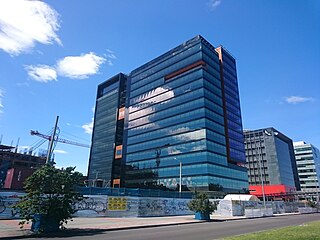
Science and technology in Colombia refers to the development of scientific research and technological innovation in Colombia, and how these in turn affect Colombian society, politics, and culture. Colciencias is a government agency that supports fundamental and applied research in Colombia.
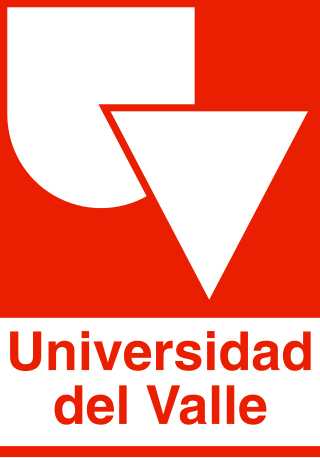
The University of Valle, also called Univalle, is a public, departmental, coeducational, research university based primarily in the city of Cali, Valle del Cauca, Colombia. It is the largest higher education institution by student population in the southwest of the country, and the third in Colombia, with more than 30,000 students. The university was established by ordinance No. 12 of 1945, by the Departmental Assembly as the Industrial University of Valle del Cauca, under the leadership of Tulio Ramírez Rojas and Severo Reyes Gamboa.
The Anuario Colombiano de Historia Social y de la Cultura, founded in 1963 by Jaime Jaramillo Uribe, is the academic journal of the Department of History of the National University of Colombia. It is funded by the Faculty of Human Sciences at the university's headquarters in Bogotá. Although it mainly publishes research on Colombian history, it also accepts research on Latin American and world history, as well as historiography. It has been recognised as the main publication of Colombian historical studies. Authors are national and international scholars.
Jesús M. de Miguel Rodríguez is a sociologist and professor of sociology at the University of Barcelona where he is director of the sociological research group GRS. He is also the representative for Spain on the committee of Social Sciences of the European Cooperation in the Field of Scientific and Technical Research at the European Commission.
Latindex is a bibliographical information system available for free consultation. Established as a network in 1997, the project is based on the cooperation of 17 national resource centers that operate in a coordinated scheme for the gathering and dissemination of relevant information and data on the Iberoamerican journals.
Sergio Esteban Vélez Peláez is a Colombian writer, professor and journalist. He won the Premio Nacional de Periodismo Simón Bolívar 2010 », the Premio Internacional de Periodismo José María Heredia 2010 .) and the Premio Cipa a la Excelencia Periodística 2012. The poet Olga Elena Mattei says that Vélez represents the Andean aspect of the contemporary Colombian poetry. Vélez is a Communicator of the University of Antioquia, Colombia.

El Infiernito, is a pre-Columbian archaeoastronomical site located on the Altiplano Cundiboyacense in the outskirts of Villa de Leyva, Boyacá, Colombia. It is composed of several earthworks surrounding a setting of menhirs ; several burial mounds are also present. The site was a center of religious ceremonies and spiritual purification rites, and also served as an astronomical observatory.
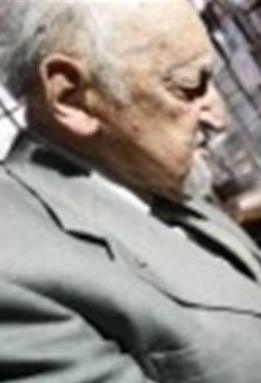
Guillermo Abadía Morales was a Colombian linguist, academic, anthropologist, folklore researcher and indigenous language expert. Abadía Morales was one of the first to champion the study of indigenous languages in Colombia.

Eduardo Posada Flórez is a Colombian physicist and the executive director of COMSATS’ Centre of Excellence in Colombia, the International Centre of Physics (CIF), and is the chairperson of COMSATS’ Coordinating Council, comprising the Heads of Centres of Excellence.

Gonzalo Correal Urrego is a Colombian anthropologist, palaeontologist and archaeologist. He has been contributing to the knowledge of prehistoric Colombia for over forty years and has published in Spanish and English. Correal Urrego is considered one of the most important anthropologists of Colombia. He has collaborated with many other anthropologists and archaeologists, among others Thomas van der Hammen and Ana María Groot.
The Spanish Network of Excellence on Cybersecurity Research (RENIC), is a research initiative to promote cybersecurity interests in Spain.
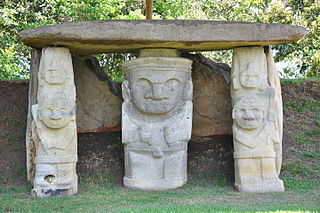
Juan Friede Alter was a Ukrainian-Colombian historian of Jewish descent who is recognised as one of the most important writers about Colombian history, the Spanish conquests and a proponent of indigenism; the defense of the rights and descriptions of the oppression of indigenous people.

Fernando Guillén Martínez (1925–1975) was a Colombian researcher, journalist, historian, sociologist and essayist.
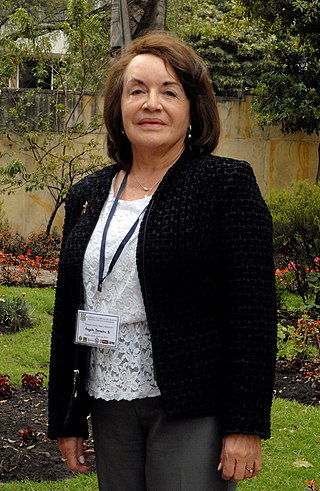
Ángela Stella Camacho Beltrán, is a Colombian physicist and president of the Colombian Network of Women Scientists. Camacho's main work is in the fields of condensed matter physics, solid state physics, and low-dimensional physics. She was the first Colombian woman to obtain a PhD in physics.

The Cartagena Botanical Garden is located in the hills above Cartagena, in Turbaco, Bolívar, Colombia. It stretches over nine hectares, of which three hectares are natural tropical dry forest and six hectares are dedicated to botanical collections.











